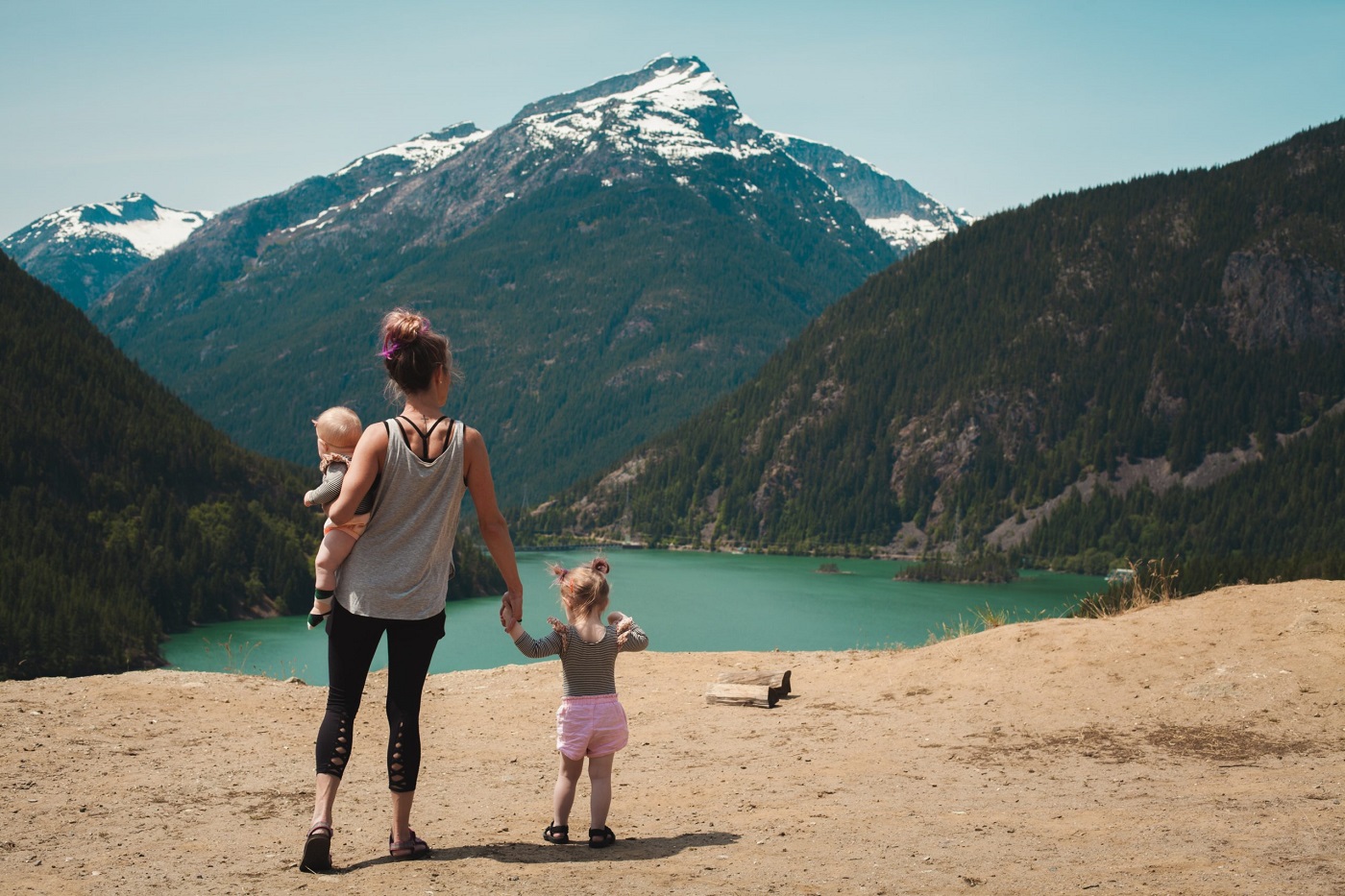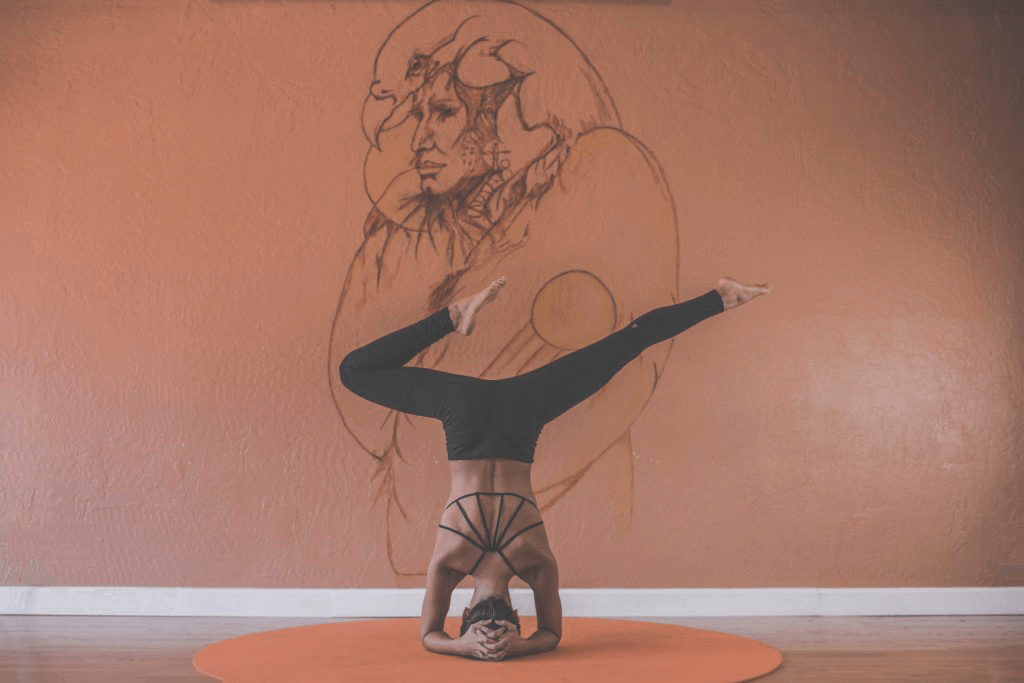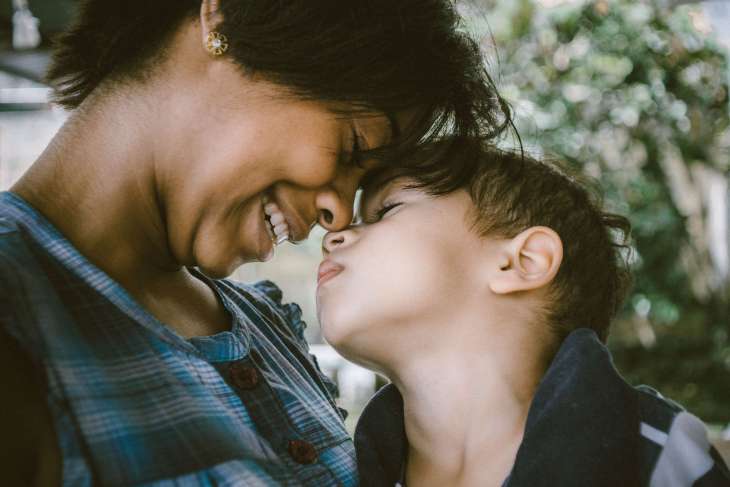Traveling with an infant can be very rewarding and challenging at the same time. Traveling with a baby requires a level of preparation (or skill!) and awareness to make sure the trip goes off without a hitch!
There are a lot of things to keep in mind during baby travel and it can be overwhelming! You worry about a plethora of things – is your baby safe from germs or is your baby comfortable and safe during transit? On top of that, you have to make sure you packed for every possible scenario that may unfold.
Ultimate Guide to Traveling with Infants
If you’re reading this as a first-time parent hoping to get some sort of guidance, you came to the right place. We have prepared a comprehensive guide on traveling with an infant. We’ve broken all the important things down into sections, so let’s get to it.
Baby Travel Checklist
Having a road trip with baby is one of the most common scenarios you’ll experience as a parent. When traveling with an infant there are some concerns you need to keep in mind to ensure baby is safe and secure.
Baby Travel Checklist for your Baby Gear
The first thing you need to keep in mind is to have your “baby gear” ready. Think of it as a Swiss army knife of baby travel.
Things inside the baby’s necessities bag may differ from infant to infant and with each parent’s needs. Here are the fundamental items you should have in your baby bag:
- Diapers
- Homemade wet wipes (Read More: 5 Household Products You Didn’t Know Are Toxic)
- BPA-free milk bottles
- Change of clothes
- Fleece blanket
- Air Quality Monitor
- Ointments
- Medicines
- Toys
All these other things should all fit into one easy bag that you can just grab and go.
Stroller Vs. Baby Carrier
Wondering if it’s worth packing your bulky stroller? Generally, it’s better to travel as light as possible, as this makes things a lot easier for you as the parents. Here’s a quick rule of thumb:
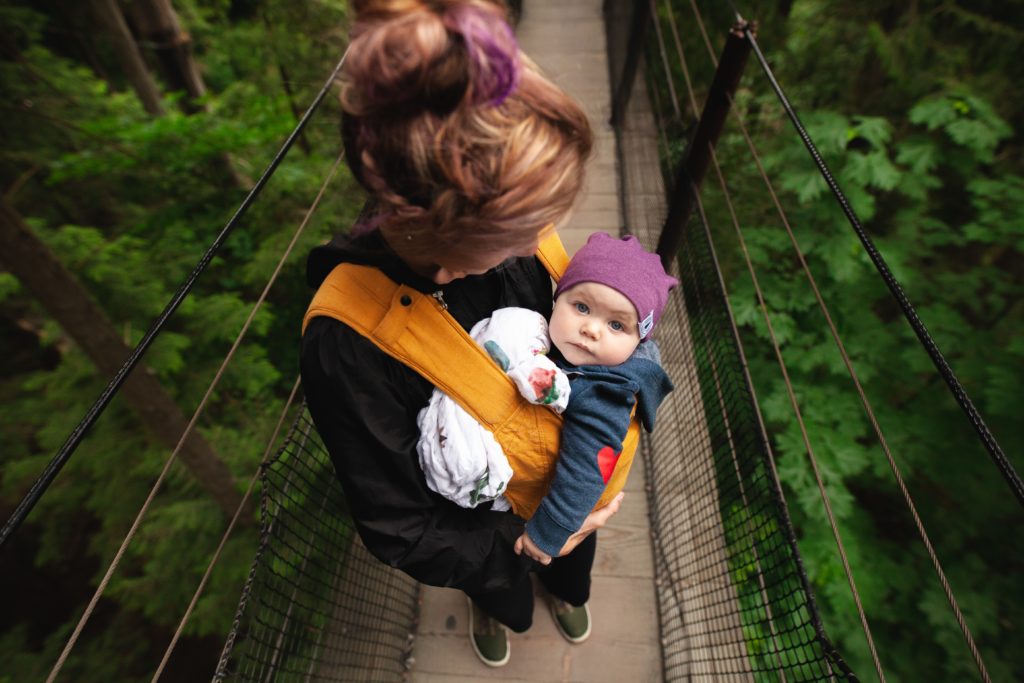
- Stroller – best for shopping, sight-seeing, city walks.
- The stroller is much more ideal and easier for meal time, so if you intend to take time and eat a lot a stroller with a snack tray is much better.
- If baby needs a nap, the stroller is generally better, but it also depends on the child, as some babies have trouble sleeping on-the-go in a stroller.
- Warm weather travel generally favors the stroller, as you can keep keep baby covered and your body heat won’t make the child sweaty.
- Baby Carrier – camping trips, hiking, and when you need full command but your little one is demanding all of your attention.
- For sight-seeing, the carrier is generally superior, as it is easier to bring baby around, and you can position baby with a perfect front seat view of everything.
- In warm weather, the carrier will quickly make both the parent and the baby feel warm and sweaty, but cooler weather may have baby feeling more snug in the carrier.
- If you will be using public transportation heavily and getting on and off multiple rides, the carrier is much more convenient than bringing the stroller along.
Traveling with Baby
Baby in the Car
When traveling and you are driving, the first thing you need to answer is: who is taking care of baby while you are driving? It’s best not to travel alone with baby, but if you must, there are things to keep in mind:
-
Keep Baby Comfortable
- Strap baby snugly in a car seat at the back with window shades to protect him from the sun. Never put baby in the front seat, in case of an accident the airbags could be more dangerous for baby than the impact. The rear seat is generally much safer.
- Dress baby in thin layers of clothing, with a close-fitting like tights or leggings, or a full body suit. Add onto this loose pants and a top, using warmer clothing as necessary depending on the weather, like a sweater or thermal top. Infants generally need one more layer of clothing than adults to keep nice and warm.
-
Keep Baby Occupied
- Be sure to bring your baby’s favorite books, toys and other things to keep him busy while in transit. You can’t afford to have too many distractions while driving so this will help baby a lot. You can use white noise playing to lull baby to sleep as well.
-
Plan out your Rest Stops
- Being in a car for hours on end is tough on anyone, and it’s also tough on infants. Schedule your stops to coincide with the baby’s feeding time. Stretch his arms and legs to give him a rest from being cooped up in the car. This is also the perfect time to check his diapers and change them as needed.
-
In case of Motion Sickness
- You can help baby avoid getting motion sick by rolling your windows down and getting fresh air into the car instead of using the air conditioning. Avoid feeding your baby while moving. This will also provide fresher are and improve air quality (especially carbon dioxide levels) inside your car.
Baby on the Bus/Train
Do note that some buses offer specific seating for babies. Be sure to check with the bus company if this is the case. If they do not have seating for babies, you can book a seat for baby beside you or you may need to carrying baby on your lap.
-
Book a Ride with Stops
- For long rides, check if the bus or train has stops where baby can take a break and do the necessities like feeding or changing diapers. For trains, check if the stations have wheelchair access, which helps if you are bringing a stroller.
-
Have Exact Change or your Travel Card ready
- You can’t really afford to be fiddling with your purse when traveling with baby. Make sure everything is ready ahead of time and on hand for convenience, so you can keep your attention on your baby.
-
Ask the Staff for help
- There might be staff who are trained to help you with infants. Be sure to check if there are any trained professionals on your trip. Some passengers may also be able to help you in a pinch. Ask help from people around you if necessary. You may especially need help in bringing the stroller up the bus.
-
Ask for the Window Seat
- In case your baby is crying or needs private time, you can always turn your back to the rest of the bus and face the window, making a little cub hole for you and your infant.
Flying with an Infant
Travelling with baby on plane will involve very specific things that you need to take into consideration. These are all important and concern your infant’s health and well-being, so be aware of these before planning bringing baby on flight trips.
-
Baby’s Age
- Newborns are more susceptible to picking up diseases especially in an enclosed space such as an airplane. Most doctors will discourage travel with an infant by airplane within a few weeks of their birth. If you must travel, be mindful of your hygiene, and avoid being near travelers who are obviously sick and coughing or sneezing.
Read More: Traveling With Asthma Made Easy With This Checklist
-
Baby’s Ears
- The cabin pressure during a flight can cause problems even for adults, and having your ears pop can be a very unpleasant experience. Baby’s ears are much more sensitive and the change in pressure can be extra hard for baby. Help keep the pressure off the infant’s ears by using cotton balls, small earplugs or noise-canceling headphones. This can also help put the baby to sleep.
-
Baby’s Breathing
- While the cabin pressure will affect ears more than anything, babies who have chronic heart or lung problems, or who have upper or lower respiratory tract concerns might be affected by the change in air pressure. Be sure to consult your doctor’s physician if this is a concern.
-
Baby’s Safety Seat
- Airlines may or may not have a safe seat for infants. Some airlines have specific safety seats for infants, but others might require you to hold your baby during the flight. Some airlines will not charge you for bringing a baby on the plane, or may just have a small baby carriage fee. You may be able to check with the flight attendant if your baby can take an open seat if the plane isn’t filled. As always, be sure to keep baby in sight and on hand.
Do’s and Dont’s when Travelling with Baby
When traveling with an infant there are a few rules of thumb you should follow regardless of where you’re going and how you’re getting there. Let’s go over them so you can make the most out of these golden years.
Do’s
-
Smile at people around you
- Not everyone will understand how hard it can be to hush a crying baby. Smiling at people relieves the tension around and makes people aware that you recognize the situation. People are more likely to offer you some help too!
-
Have some white noise ready on a phone or tablet
- Nothing works better at putting baby to sleep than some good ol’ white noise. Use this to your advantage when you need to send your young one off to la-la land.
-
Keep your hands free by using a baby carrier
- Making sure you have the most mobility and dexterity possible is important when you have a baby in tow. The carrier keeps your hands free and puts baby in an easy center of gravity.
-
Have a simple carry-on bag to house baby’s necessities
- What’s worse than bringing a gazillion things? Bringing them in separate bags. Keep everything in one place so it’s easy and you don’t forget or leave anything behind.
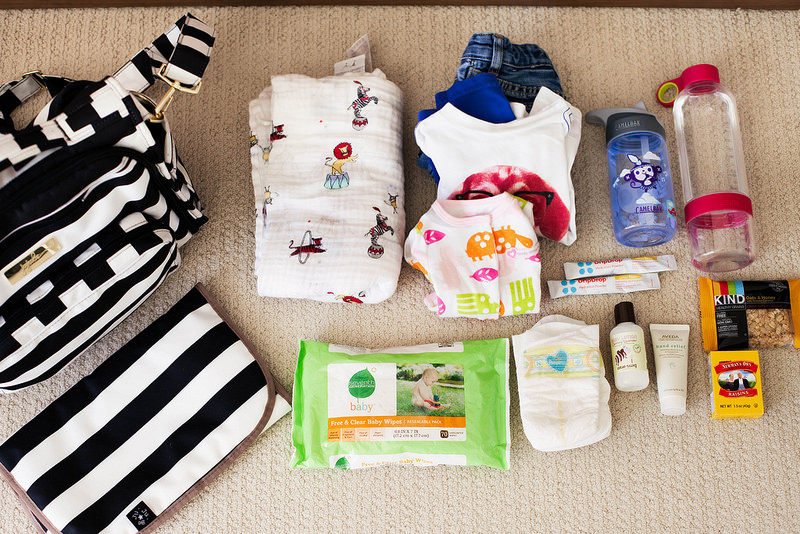
Source: cuteandlittle.com
-
Have a stroller with a shoulder strap
- Bringing a stroller along can be cumbersome, especially when boarding a vehicle like a bus or a train. You’ll want a collapsible stroller that has an easy strap you can carry on your shoulders when needed.
-
Breastfeed over formula if possible
- It’s simpler and better for your child. Have a nursing cover ready at all times in the baby bag.
-
Always use a bib
- Babies can get messy when feeding, and they don’t have the best drool control, and they can throw up. Having a bib will keep you clean and it’s easier to wash than your shirt or dress.
-
Bring snacks
- When the baby hits 7-8 months you can start introducing finger foods to supplement breastmilk. Babies get hungry a lot so you’ll want to have an ample supply of pureed or soft solids along.
Don’ts
-
Don’t travel aimlessly
- Have a plan! Each escapade with baby is an irreplaceable opportunity to make memories. Plan out where you intend to bring your infant, we have some recommendations later in the article.
-
Don’t be distracted
- While traveling you may be tempted to just let go and enjoy yourself seeing the sights and sounds, but never forget that you are carrying a defenseless child with you that needs 100% of your attention and care, and then some.
-
Don’t travel when baby is sick
- This should be a given, but it bears repeating. If your child isn’t well, traveling is ill-advised, no pun intended. Postpone the trip unless it is absolutely necessary.
Read More: Air Quality Detector Can Protect Babies and Elderly from Allergies
-
Don’t be in a rush to get seated
- Especially when traveling with a baby on a plane, this tip can save you a lot of discomforts. Getting on the plane 30 minutes early before take-off is 30 more minutes of you and baby being in a cramped space. It’s better to board last.
-
Don’t bring just one change of diapers
- Even if it’s just a day trip or you’re expecting to be able to resupply at a nearby convenience store, packing just one set is asking for trouble. You never know when baby will need a change, or if unforeseen circumstances delay or lengthen your travel time.
-
Don’t change diapers in public
- When the baby is crying you might be tempted to do this, but please don’t. Find a private place to do it; many bathroom malls provide changing stations for infants, and some malls even have dedicated nursing stations.
Baby-Friendly New York Travel Tips
New York is one of the greatest cities in the world. It’s a great place for anyone to visit all year round. The steady, bustling nature of this city that hosts a huge mix of cultures and the never-ending throng of busy people can be overwhelming, though. Here are some baby-friendly places you should visit in New York!
-
Van Cortlandt Park
- This is a great nature trail for green-loving parents to immerse their babies into the great outdoors. If you want a simple nature escape, this is a popular place for parents to bring their children.
-
Storytime
- There are drop-in story sessions for babies all around the city. You’ll find them in public libraries like The Children’s Center at 42nd Street in Manhattan. This is a unique spectacle even for your infant.
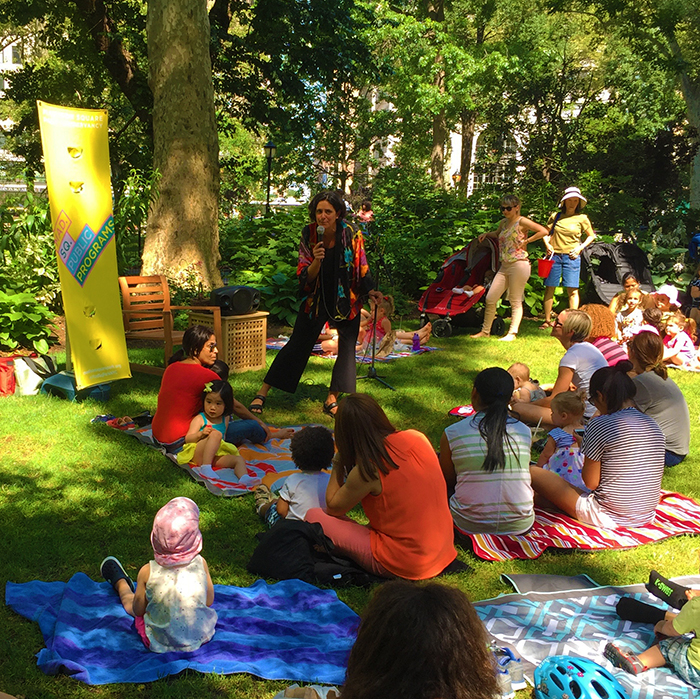
Madison Square Garden Storytelling
-
Baby’s First Movie
- Some movie theatres in New York like Cry Baby Matinees, Landmark Sunshine Cinema, and Nitehawk Cinema have special screenings for babies. Sound is turned down and the lights are left on dim, so you can see what your baby is doing at all times and they won’t get scared by the loud noises. It’s a new experience both for you and your infant.
-
Bring Art to Baby
- You can find places where babies are free to crawl and doodle with their fingers, like the Children’s Museum of the Arts where infants and toddlers are encouraged to get messy and play with a blank canvas.
Baby-Friendly Los Angeles
Los Angeles with a baby is best enjoyed in the spring or summer months to make the most of the lay of the land. From natures walks, beach trips, to Disney Land – LA is the epitome of baby-friendly.
-
Baby at the Beach
- Los Angeles is home to many sparkling beaches, and many are very baby-friendly. The Annenberg, for example, has facilities and boardwalks for your stroller.
-
It’s Disney Land
- What better place to take your baby than the land of dreams, Disneyland? When preparing for a visit here, ditch the stroller as this will be a liability in this theme park. Baby centers are scattered throughout for nursing and other needs, and there are baby-approved rides so everyone can join in the fun!
-
LA Zoo
- It’s a great choice to introduce baby to many different animals, and even the youngest babies can enjoy the seal shows. It’s best to bring your stroller because you will be walking around a lot and also to provide shade for your baby. LA Zoo is a big place with many attractions to explore.
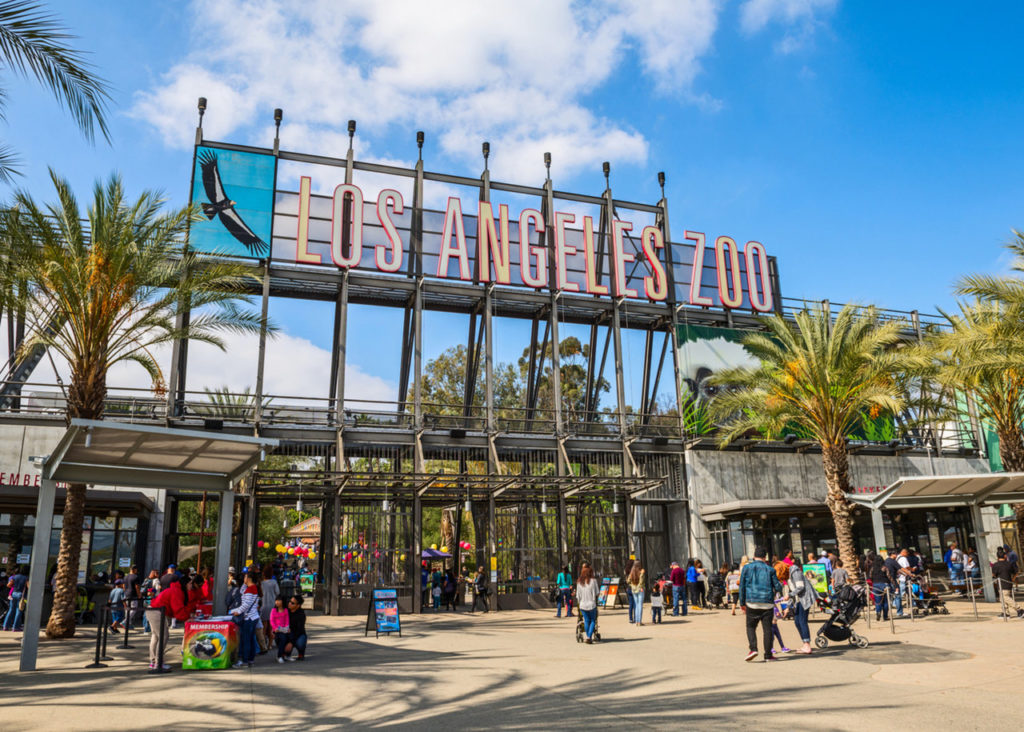
-
LA Arboretum
- The arboretum is the perfect spot for a relaxing afternoon. With lots of gardens and plants, you and your baby would be able to take a breather and just relax. There are library club meetings and painting classes for mom and dad as well while baby enjoys the flowers.
-
Salazar
- This outdoor family restaurant has a wide open space with a friendly, relaxed atmosphere full of lush gardens. The restaurant serves excellent Mexican food and cocktails. Book Salazar in for a laid-back picnic day out.
Baby-Friendly Travel Tips in Cape Canaveral, Florida
Cape Canaveral often appears high on the list of baby-friendly cities. Its kid-friendly attractions and infrastructure are very convenient for parents with strollers.
-
Kennedy Space Center
- It’s never too early to start baby on the quest to become an astronaut! The Kennedy Space Center is one of the star attractions of Cape Canaveral. It has many interesting activities like the Heroes and Legends attraction. If that’s a little too much for the baby, you can always take a relaxing space walk through Rocket Garden or rest with the Kennedy Space Center Bust Tour.
-
Manatee Sanctuary Park
- This beautiful 10-acre park offers free access to a large nature preserve with boardwalks for your strollers so you can see the manatee lounging around the Banana River. The scenery is excellent and something for baby to enjoy as you bask in nature’s embrace.
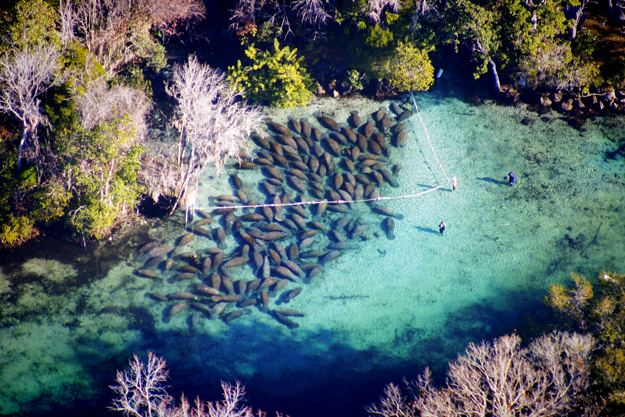
-
Port Canaveral Cruise
- What better way to make memories with your family than a leisurely cruise? A Disney family cruise setting off from Port Canaveral will accept babies from 6 months onwards, and there are nurseries where they can be dropped off onboard should the need arise.
-
Parker Brothers Concepts
- Parker Brothers Concepts is for the geek mom and dads. It has replicas of the Batmobile, the Tron light cycles, Ecto-1, and more at the Hollywood Auto Museum. Even baby can appreciate the colorful designs and all the other paraphernalia like Iron Man suits, action figures and comic books.
Travel Tips Depending on Seasons
In addition, there are some things to keep in mind for the change of seasons.
-
In Winter, Add an Extra Layer
- Babies lose heat faster than adults, so you want to keep the baby warm, but not too warm that they overheat. Dress them in the same kind of clothing you would wear, then add one extra layer on top of that.
Read More: Temperature Affects Us in More Ways than We Think
-
In Spring, Bring Antihistamines
- The excess pollen during springtime can increase the risk of allergies for your baby. Benadryl is generally safe for infants, but you’ll want to try it out at home first with a small amount to see the response with your child. Check with your pediatrician as well before committing to any medication.
-
In Summer, be Careful of the Heat
- The heat is dangerous for newborns and infants. Always keep them out of direct sunlight with cool comfortable clothing and some sunscreen (at least SPF 30) on exposed skin like their face and feet. Watch for signs of dehydration like decreased saliva, and if they are sweating too much or irritable they may be overheated.
-
In Fall, be careful of Molds and Bacteria
- Spring brings a lot of pollen but in Fall you have to watch out for microbes that can cause coughing and wheezing or even the flu. Try to keep to air-conditioned places with less moisture if at all possible.
Read More: How to Spot Mold Growth and Find their Breeding Areas
Be Mindful of the Air You Breathe
You may be strolling around NYC or beach bumming in Los Angeles – wherever you and your baby may be traveling, do not forget to be mindful of the air you breathe.
Children breathe in 50% more air per pound of body weight than adults. Children’s immune system and lungs continue to develop until their late teens, and studies show that developing organs are more sensitive to the toxic effects of air pollutants and environmental toxins.
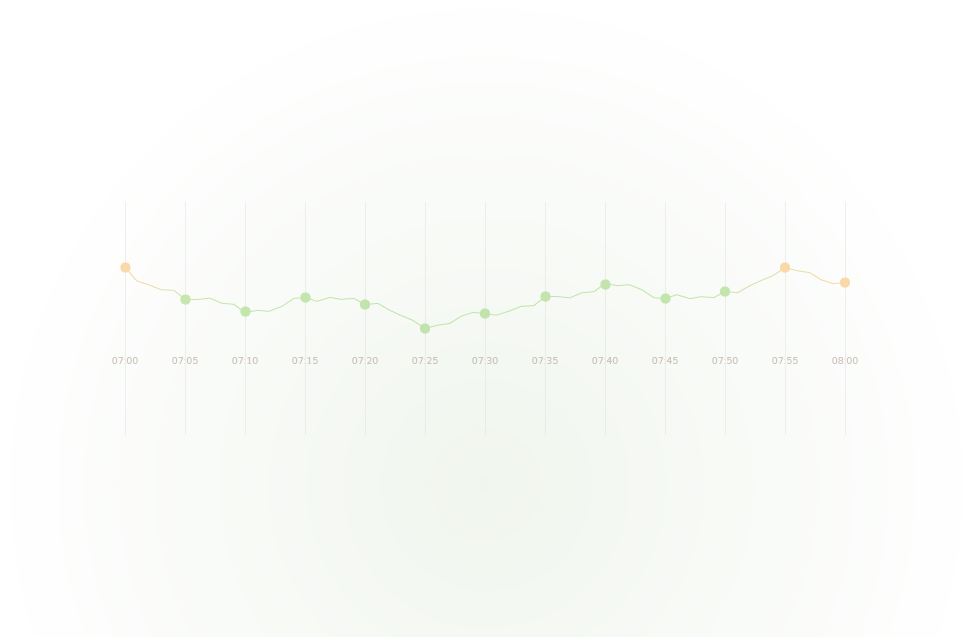
Air pollutants are everywhere – even in that baby wipes you are using! It is our duty to protect our children, but how are we going to protect them if we don’t know our enemy?
Know Your Air
Having an Indoor Air Quality Monitor will help you know what toxins linger in the air you breathe. uHoo can provide you with the data you need to make the changes that matter. When you receive an alert about the air quality, the uHoo app will also automatically provide recommendations on what you can do at that moment for better air quality.
Pulling off a successful trip is very rewarding. Despite all odds and anything that could possibly go wrong, you know that you are well prepared and knowledgeable about what’s best for you and your family.
